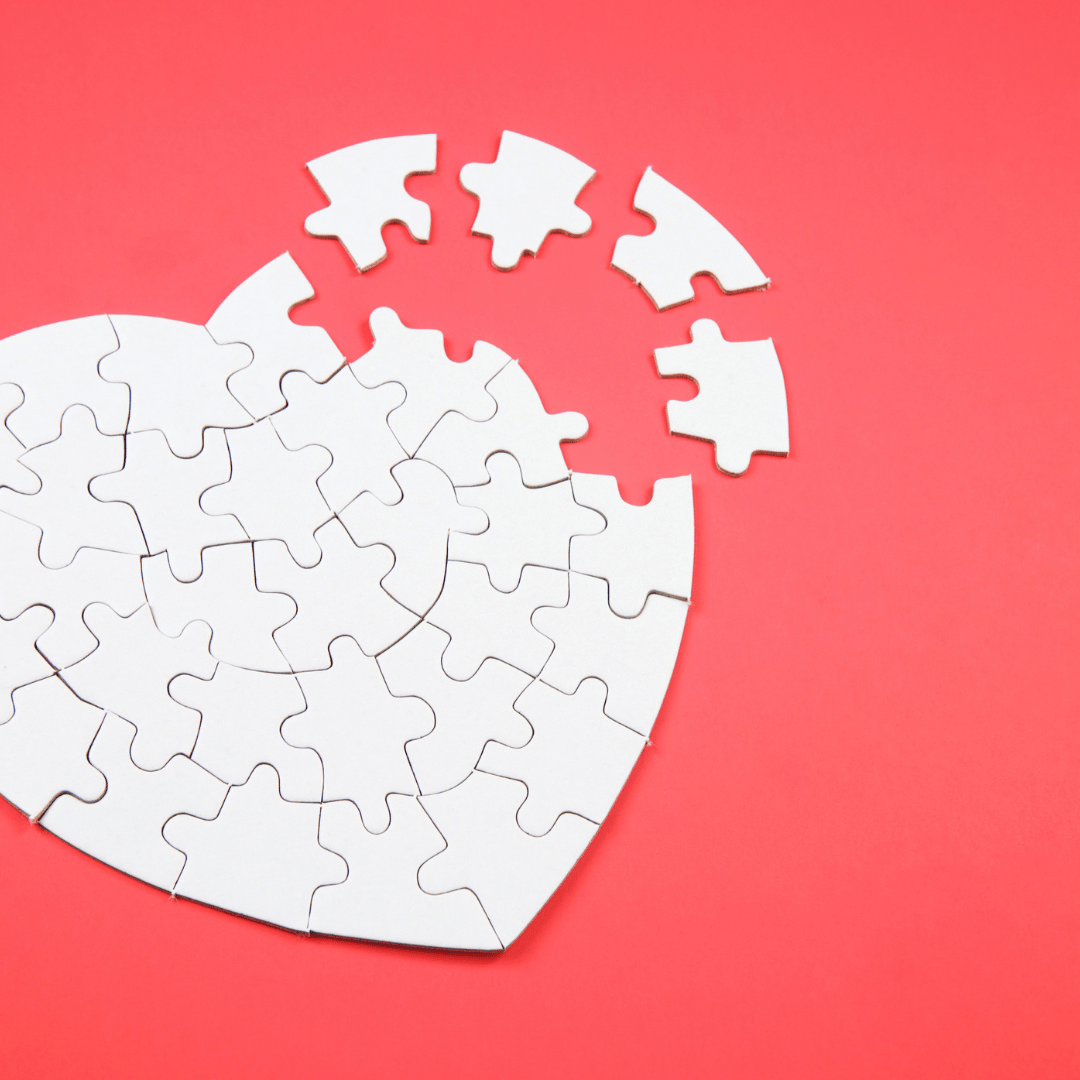Breaking up is never easy. Whether you saw it coming or it blindsided you, the aftermath can leave you feeling lost, hurt, and uncertain about the future. However, it’s essential to remember that healing is a process, and with time and self-care, you can emerge stronger and ready to embrace life again. Here’s a guide on how to navigate through the storm of a bad breakup.
“You Complete Me” is a Fallacy
While it hurts to lose someone we love or loved, it’s important to remember that nobody will ever complete you. And breaking up does not mean a piece of you is lost. You were whole before the relationship and you are whole after the relationship. However, depending on your past experiences and especially your childhood, it may not feel this way. That’s why seeking professional help is always a good idea. Afterall, they call it a “break up” because often times people feel that they (their sense of self) is in pieces. Life transitions will do that and it’s uncomfortable. Therefore, reminding yourself that it’s ok to not be ok is part of the process of recovery.
Allow Yourself to Grieve
It’s okay to feel sad, angry, or confused after a breakup. Give yourself permission to experience these emotions fully. Suppressing them or pretending they don’t exist can prolong the healing process. Cry if you need to, talk to friends or a therapist, and allow yourself the time to heal.
Reflect on the Relationship
Take time to reflect on the relationship and what you’ve learned from it. Understand that every relationship, even if it ends, teaches us valuable lessons about ourselves and what we need in future relationships. Reflecting can also help you gain closure and acceptance.
Practice Self-Care
Self-care is crucial for healing. Take care of your physical and emotional well-being by exercising, eating well, and getting enough sleep. Engage in activities that bring you joy and relaxation, whether it’s reading, listening to music, or spending time in nature.

Set Boundaries
Avoid unnecessary contact with your ex, especially in the immediate aftermath of the breakup. Set clear boundaries to give yourself space to heal and move on. This might mean unfollowing them on social media or limiting communication until you feel ready to engage without emotional turmoil.
Focus on Personal Growth
Use this time to invest in yourself and your goals. Rediscover hobbies or interests you may have neglected during the relationship. Set new goals for your personal and professional life. Redirecting your energy towards positive growth can help shift your focus away from the pain of the breakup.
Seek Closure
Closure doesn’t always come from the other person; it often comes from within. Accept that closure may be a gradual process rather than a single event. Write in a journal, talk to a trusted friend, or seek closure through therapy if needed. It’s about finding peace with the situation and moving forward.
Avoid Rebound Relationships
This goes back to our first point that its ok to not be ok and nobody is going to fill the natural void you are feeling. Jumping into a new relationship too soon can hinder your healing process and potentially lead to more heartache. Take the time to heal and rediscover yourself before considering new romantic connections. Focus on building a strong foundation for your next relationship when you’re emotionally ready.
Be Patient with Yourself
Healing from a breakup takes time. Be patient with yourself and allow the process to unfold naturally. Celebrate small victories along the way, such as a day where you felt genuinely happy or a moment when you didn’t think about your ex. Progress may feel slow, but every step forward counts.
Start Receiving Support From Therapists in Savannah, GA
If you find it difficult to cope with the emotions or if the breakup has significantly impacted your daily life, consider seeking help from a therapist or counselor. A licensed therapist or counselor can provide guidance, validation, and coping strategies tailored to your unique needs and circumstances. Therapy can offer a safe space to explore your feelings, fears, and uncertainties, as well as develop practical skills for managing stress, anxiety, and depression. Our team would be honored to offer support from our Savannah, GA-based practice. You can start your therapy journey by giving us a call at 912.319.5552 or emailing us at info@watersedgecounseling.com.
Other Services Offered With Waters Edge Counseling
We understand that you may experience issues with more than one mental health concern at a time. This is why we are happy to offer support with a variety of mental health services. Our team is happy to offer support with multiple mental health services including online counseling, clinical supervision, coping after a cancer diagnosis, and SCAD student counseling. We are also happy to offer therapy for anxiety, depression, eating disorders, substance abuse, teen substance abuse, and counseling for men. In addition, we also offer counseling for teens, child counseling, family counseling, Christian counseling, grief counseling, and marriage counseling.
Please note: While this blog is designed to help people achieve their goals, the information within each post is not a substitute for therapy or medical advice given by a licensed professional.

